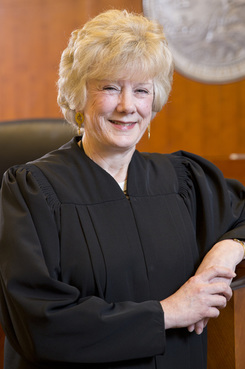Twitter Heads to Court to Fight Class Claims of Discriminatory Promotion Practices
"Holding companies accountable for systemically keeping underrepresented groups out of these leadership positions is an important step in achieving that balance,” plaintiff Tina Huang said.
May 08, 2018 at 02:56 PM
6 minute read
 Twitter headquarters in San Francisco. Credit: Jason Doiy/ The Recorder
Twitter headquarters in San Francisco. Credit: Jason Doiy/ The Recorder
Tina Huang joined Twitter Inc. in 2009 as one of the company's first female engineers, after stints working for Apple Inc. and Google Inc. The San Francisco-based social media company was taking off and its workforce hovered under 100 employees.
During her tenure, Huang said it seemed the career trajectories of her male peers took a different direction from her own, with men ascending to higher positions in the company at a faster clip. When Huang asked for a promotion in 2013, her manager signed off, agreeing she was qualified for the job. Yet she did not receive the new position. Huang took a leave of absence and ultimately left the company, the engineer said in a lawsuit she filed against Twitter in 2015.
“After our investigation, we discovered Tina's difficulty in navigating her career wasn't unique to her, and many women were having the same problems,” said Huang's attorney Jason Lohr at San Francisco's Lohr Ripamonti & Segarich.
 Judge Mary Wiss. Credit: Jason Doiy
Judge Mary Wiss. Credit: Jason Doiy
Attorneys for Twitter and Huang will face off Wednesday in San Francisco Superior Court before Judge Mary Wiss in a class certification hearing, arguing over whether the company's promotion system skews toward men and allows managers to use subjective measures to pick from a “good ol' boys” club.
The case is part of a recent wave of class action claims alleging gender bias against major tech companies, including Google, Uber Technologies Inc. and Microsoft Corp.. A San Francisco judge last month certified a class in pay equality suit against Google.
“We want to see some systematic changes to the employment practices at Twitter,” Lohr said in an interview. “But more broadly, a ruling in our favor would chart a path for litigation challenging systematic bias in the technology industry.”
Huang's attorneys will seek to certify a class of 135 female engineers, arguing that the promotion system for software engineers does not protect against gender bias and uses subjective criteria. The argument is centered around not just the aggregate numbers of women at the company but hones in on the attrition of women as they move up in seniority and into technical leadership.
Twitter has denied Huang was treated unfairly and argues in court documents that the plaintiff-side evidence fails to prove “gender disparity of statistical significance.” The company is represented by a team from Orrick, Herrington & Sutcliffe, including partner Lynne Hermle, who led the defense for the venture capital firm Kleiner Perkins Caufield & Byers in the discrimination case Ellen Pao brought.
“Twitter disputes the meritless claims made in this case, and in the motion for class certification. We are deeply committed to an inclusive and diverse workplace, and to the fair and equitable treatment of all our employees,” a company spokesperson said in a statement.
Twitter's lawyers argue Huang's case does not show that promotion practices lead the company to consistently make discriminatory decisions. Huang sought a higher senior position than she already held. Senior positions, Twitter's attorneys argued, face unique circumstances that would not affect the less experienced employees who would join the class.
It's uncontested between the parties in Huang's case that the company holds unconscious bias trainings for employees and touts the importance of diversity and building a pipeline for female engineers.
Several senior female engineers who work for Twitter sat for depositions in which they described positive experiences at the company, including with ascending through the ranks. These employees argue that while there are fewer women than men in the company, they have not experienced differential treatment than their male counterparts.
Huang's attorneys contend that Twitter's attempts to ensure equal promotion of men and women fall short. The argument is centered around not just the aggregate number of women at the company, but focused on the attrition of women as they move up in seniority and into technical leadership.
“The difficulties women face from isolated incidents of harassment or discrimination are daunting. However when discrimination is systematic, poor choices by a single organization can have a dramatic and wide-ranging impact,” Huang's lawyers wrote in their motion to certify the class. “This case focuses on a promotion system that was likely developed with the best intentions, yet had profounding negative consequences for the women it impacted.”
Huang's attorneys argue the promotion policy is designed using subjective criteria and employees allegedly said promotions were often “popularity contests.”
An expert report submitted by the plaintiffs found that when looking at software engineers, women disproportionately make up Twitter's lowest rungs and remain in those positions longer than their male counterparts. Twitter's Orrick team submitted an expert report that said the makeup of the company's workforce shows no significant difference between the promotion of women and men.
Women in the tech industry ever more are speaking out about perceived imbalances. Former Uber engineer Susan Fowler's blog post about the sexism and harassment she said she experienced at the company drove a new conversation about workplace culture. Huang hopes her lawsuit will inspire change and shine a light on unequal treatment.
“Equality in positions of power impacts the strategy and direction of tech companies,” Huang said in an email statement. “Technical leadership controls how and what gets built. To change the dynamic of tech, we need to focus on more than the number of women in tech companies. Holding companies accountable for systemically keeping underrepresented groups out of these leadership positions is an important step in achieving that balance.”
Read more:
Google Must Face Female Employees' Class Claims Alleging Pay Disparities
Ninth Circuit Ruling on Salary History Fuels Renewed Focus on Gender Pay Gap
Bias Suit Against Twitter Set to Expand Across Engineer Ranks
Orrick's Hermle Hits Back at Nasty Depiction in Ellen Pao's New Book
➤➤ Get employment law news and commentary straight to your in-box with Labor of Law, a new Law.com briefing. Learn more and sign up here.
This content has been archived. It is available through our partners, LexisNexis® and Bloomberg Law.
To view this content, please continue to their sites.
Not a Lexis Subscriber?
Subscribe Now
Not a Bloomberg Law Subscriber?
Subscribe Now
NOT FOR REPRINT
© 2025 ALM Global, LLC, All Rights Reserved. Request academic re-use from www.copyright.com. All other uses, submit a request to [email protected]. For more information visit Asset & Logo Licensing.
You Might Like
View All
'Where Were the Lawyers?' Judge Blocks Trump's Birthright Citizenship Order
3 minute read
Netflix Music Guru Becomes First GC of Startup Helping Independent Artists Monetize Catalogs
2 minute read
K&L Gates Files String of Suits Against Electronics Manufacturer's Competitors, Brightness Misrepresentations
3 minute read
Holland & Knight Hires Former Davis Wright Tremaine Managing Partner in Seattle
3 minute readTrending Stories
- 15th Circuit Considers Challenge to Louisiana's Ten Commandments Law
- 2Crocs Accused of Padding Revenue With Channel-Stuffing HEYDUDE Shoes
- 3E-discovery Practitioners Are Racing to Adapt to Social Media’s Evolving Landscape
- 4The Law Firm Disrupted: For Office Policies, Big Law Has Its Ear to the Market, Not to Trump
- 5FTC Finalizes Child Online Privacy Rule Updates, But Ferguson Eyes Further Changes
Who Got The Work
J. Brugh Lower of Gibbons has entered an appearance for industrial equipment supplier Devco Corporation in a pending trademark infringement lawsuit. The suit, accusing the defendant of selling knock-off Graco products, was filed Dec. 18 in New Jersey District Court by Rivkin Radler on behalf of Graco Inc. and Graco Minnesota. The case, assigned to U.S. District Judge Zahid N. Quraishi, is 3:24-cv-11294, Graco Inc. et al v. Devco Corporation.
Who Got The Work
Rebecca Maller-Stein and Kent A. Yalowitz of Arnold & Porter Kaye Scholer have entered their appearances for Hanaco Venture Capital and its executives, Lior Prosor and David Frankel, in a pending securities lawsuit. The action, filed on Dec. 24 in New York Southern District Court by Zell, Aron & Co. on behalf of Goldeneye Advisors, accuses the defendants of negligently and fraudulently managing the plaintiff's $1 million investment. The case, assigned to U.S. District Judge Vernon S. Broderick, is 1:24-cv-09918, Goldeneye Advisors, LLC v. Hanaco Venture Capital, Ltd. et al.
Who Got The Work
Attorneys from A&O Shearman has stepped in as defense counsel for Toronto-Dominion Bank and other defendants in a pending securities class action. The suit, filed Dec. 11 in New York Southern District Court by Bleichmar Fonti & Auld, accuses the defendants of concealing the bank's 'pervasive' deficiencies in regards to its compliance with the Bank Secrecy Act and the quality of its anti-money laundering controls. The case, assigned to U.S. District Judge Arun Subramanian, is 1:24-cv-09445, Gonzalez v. The Toronto-Dominion Bank et al.
Who Got The Work
Crown Castle International, a Pennsylvania company providing shared communications infrastructure, has turned to Luke D. Wolf of Gordon Rees Scully Mansukhani to fend off a pending breach-of-contract lawsuit. The court action, filed Nov. 25 in Michigan Eastern District Court by Hooper Hathaway PC on behalf of The Town Residences LLC, accuses Crown Castle of failing to transfer approximately $30,000 in utility payments from T-Mobile in breach of a roof-top lease and assignment agreement. The case, assigned to U.S. District Judge Susan K. Declercq, is 2:24-cv-13131, The Town Residences LLC v. T-Mobile US, Inc. et al.
Who Got The Work
Wilfred P. Coronato and Daniel M. Schwartz of McCarter & English have stepped in as defense counsel to Electrolux Home Products Inc. in a pending product liability lawsuit. The court action, filed Nov. 26 in New York Eastern District Court by Poulos Lopiccolo PC and Nagel Rice LLP on behalf of David Stern, alleges that the defendant's refrigerators’ drawers and shelving repeatedly break and fall apart within months after purchase. The case, assigned to U.S. District Judge Joan M. Azrack, is 2:24-cv-08204, Stern v. Electrolux Home Products, Inc.
Featured Firms
Law Offices of Gary Martin Hays & Associates, P.C.
(470) 294-1674
Law Offices of Mark E. Salomone
(857) 444-6468
Smith & Hassler
(713) 739-1250






